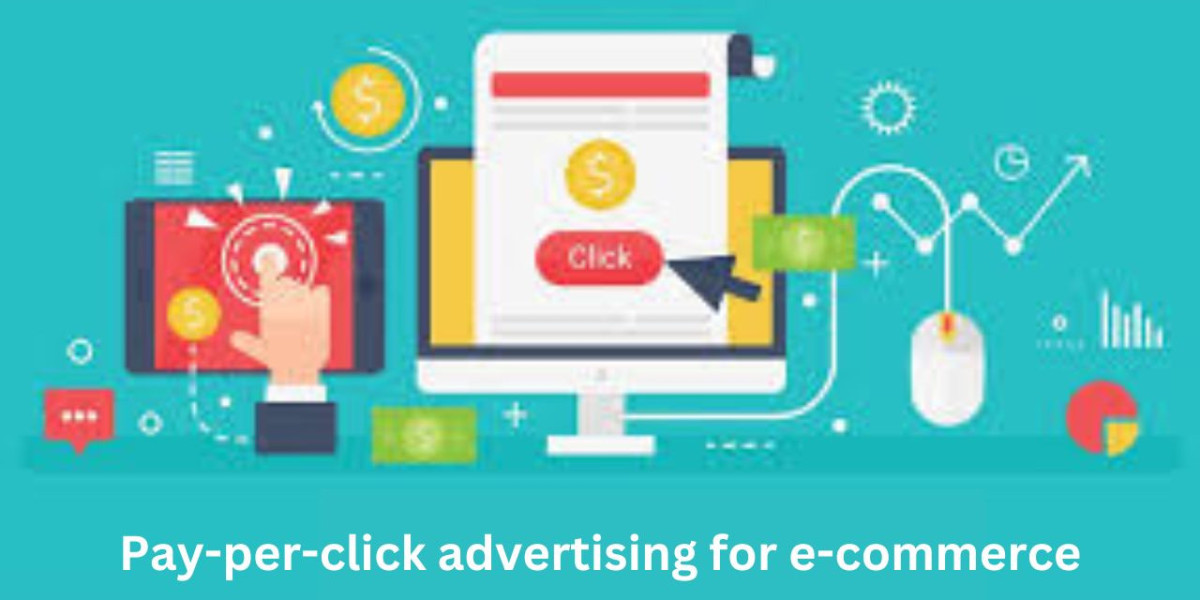Pay-per-click (PPC) advertising is a powerful digital marketing strategy that allows e-commerce businesses to drive targeted traffic to their websites. Unlike traditional advertising methods, PPC requires advertisers to pay only when a user clicks on their ad, making it a cost-effective solution for generating leads and sales.
How PPC Works for E-commerce
Ad Platforms: PPC ads can be run on various platforms, including Google Ads, Bing Ads, and social media platforms like Facebook, Instagram, and LinkedIn. Each platform has its own targeting options and ad formats, allowing e-commerce businesses to choose the best fit for their audience.
Keyword Selection: Effective PPC campaigns begin with thorough keyword research. E-commerce businesses should identify relevant keywords that potential customers might use to search for their products. Tools like Google Keyword Planner can assist in discovering high-traffic keywords with manageable competition.
Ad Creation: Once keywords are selected, the next step is to create compelling ad copy that resonates with the target audience. Successful ads typically include:
- A catchy headline
- A clear value proposition
- A strong call to action (CTA)
- Relevant keywords to improve ad relevance and Quality Score
Landing Page Optimization: The landing page is where users are directed after clicking on the ad. It’s crucial that the landing page aligns with the ad’s messaging and provides a seamless user experience. Key elements include:
- Fast loading times
- Mobile responsiveness
- Clear navigation
- Product information and visuals
- Trust signals (like reviews or testimonials)
Benefits of PPC Advertising for E-commerce
Immediate Traffic: Unlike organic search strategies that take time to yield results, PPC ads can generate traffic almost instantly once the campaign is live.
Targeted Reach: PPC allows for precise targeting based on demographics, location, interests, and online behavior, ensuring that ads reach the most relevant audience.
Budget Control: E-commerce businesses can set daily or monthly budgets for their PPC campaigns, allowing them to control spending and allocate resources effectively.
Measurable Results: PPC platforms provide comprehensive analytics that enables businesses to track performance metrics such as clicks, impressions, conversion rates, and return on ad spend (ROAS). This data is invaluable for optimizing campaigns and making informed marketing decisions.
Remarketing Opportunities: PPC advertising also allows e-commerce businesses to implement remarketing strategies, targeting users who have previously interacted with their website. This can lead to higher conversion rates by keeping the brand top-of-mind.
Best Practices for E-commerce PPC Campaigns
Continuous Keyword Optimization: Regularly review and update keywords to ensure they remain relevant and profitable. Consider using negative keywords to filter out unqualified traffic.
Ad Testing: A/B testing different ad variations can help determine which copy and design elements resonate best with the target audience. Use the insights to refine future ads.
Focus on Mobile Users: With an increasing number of consumers shopping on mobile devices, ensure that ads and landing pages are optimized for mobile viewing.
Utilize Ad Extensions: Take advantage of ad extensions offered by platforms like Google Ads. These extensions can provide additional information (such as location, phone number, or links to specific pages) that can enhance ad visibility and click-through rates.
Monitor and Adjust Bids: Regularly review bid strategies and adjust bids based on performance. Consider using automated bidding strategies offered by ad platforms to optimize ad placements.
Conclusion
Pay-per-click advertising is a vital component of an effective e-commerce marketing strategy. By leveraging targeted ads, optimizing campaigns, and analyzing performance, e-commerce businesses can significantly increase their visibility, drive qualified traffic, and boost sales. Investing time in PPC can yield impressive returns when executed correctly, making it a worthwhile strategy for online retailers.








